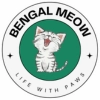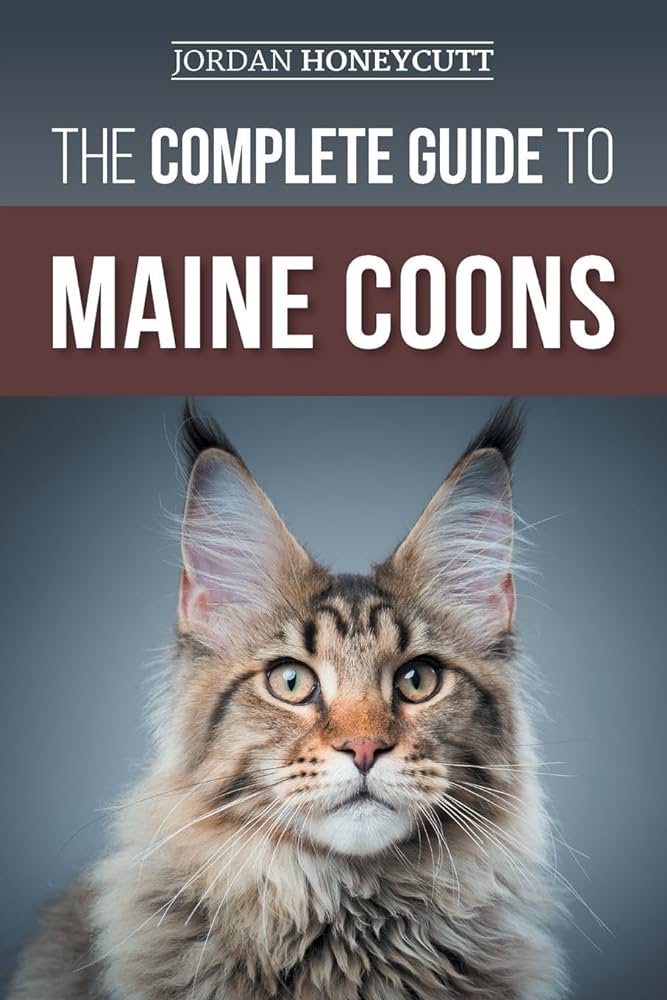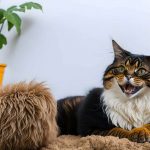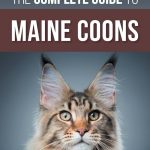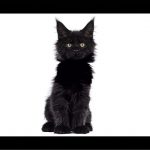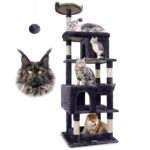Maine Coon Cat Care: The Ultimate Guide
Maine Coon cat care is similar to caring for other cats, but with a few additional considerations such as extra grooming, larger carrier and litter box, and appropriate food. They are wonderful pets to have, especially if you prefer large and beautiful cats.
However, Maine Coon cats can be prone to certain hereditary health issues like hypertrophic cardiomyopathy, hip dysplasia, and spinal muscular atrophy. They can be kept indoors or outdoors, but many owners choose to keep them indoors due to their coveted status and the risk of theft.
Ideally, Maine Coons should not be left alone for more than eight to twelve hours, as they enjoy human company and can be needier than other cats. Providing a balanced, high-protein diet and regular grooming are essential aspects of Maine Coon cat care.
Understanding Maine Coon Cats
Maine Coon cats require the same level of care as other cats, with some additional considerations. This includes extra grooming, larger cat carriers and litter boxes, and quality food. Despite their size, they are wonderful companions to live with.
Maine Coon Cat Care: An Introduction
Welcome to our comprehensive guide on Maine Coon cat care. In this article, we will dive into everything you need to know to provide the best care for your beloved Maine Coon cat. To start off, let’s understand the unique characteristics of this magnificent breed.
Maine Coon Cat Breed Characteristics
Maine Coon cats, often referred to as gentle giants, are known for their large size and breathtaking beauty. Here are some key characteristics that make them stand out:
- Size: Maine Coons are one of the largest domestic cat breeds, with males weighing between 15-25 pounds and females weighing between 10-15 pounds.
- Coat: They have a dense, shaggy coat that comes in a variety of colors and patterns. Their fur is water-resistant, perfect for their New England origins.
- Personality: Maine Coons are friendly, sociable, and affectionate cats. They are known for their intelligence and playful nature.
- Physical Features: These cats have a rectangular body shape, tufted ears, and a distinctive bushy tail. Their large round eyes and tufted paws add to their charm.
- Vocalization: While Maine Coons are generally not as vocal as some other breeds, they have a gentle, melodious voice that they use to communicate with their owners.
Understanding these unique characteristics of Maine Coon cats is essential in providing them with the care they need and ensuring their overall well-being.
Maine Coons As Family Pets
As family pets, Maine Coons are a perfect choice for those seeking a loving and loyal companion. Here’s why:
- Child-Friendly: Maine Coons are usually great with children, thanks to their gentle nature and patient temperament. They enjoy being part of the family and get along well with kids of all ages.
- Easygoing: Unlike some high-energy breeds, Maine Coons have a laid-back personality and adapt well to different living environments. They are known to be tolerant and can even get along with other pets in the household.
- Grooming Needs: While their long coat requires regular brushing to prevent matting, Maine Coons typically enjoy the grooming process. It can be a bonding experience between you and your feline friend.
- Exercise Requirements: Although they are not demanding when it comes to exercise, Maine Coons enjoy playing and interactive toys. Allocating some playtime each day will keep them mentally stimulated and physically fit.
By understanding the unique characteristics and traits of Maine Coon cats, you can create a nurturing environment that fulfills their specific needs.
Essential Care For Maine Coon Cats
When it comes to providing the best care for your Maine Coon cat, there are a few key areas you should focus on. From feeding and grooming to exercise and overall well-being, paying attention to these essential aspects of care will ensure your Maine Coon lives a happy, healthy, and fulfilled life.
Feeding Your Maine Coon Cat
Feeding your Maine Coon cat a balanced and nutritious diet is crucial for their overall health and well-being. These majestic cats have a larger build and higher activity levels than average cats, so they require more food to support their unique needs.
When choosing cat food, look for options that are specifically formulated for Maine Coon cats or large breed cats. These foods typically have higher protein content, which is essential for their strong muscles. Additionally, make sure to provide clean, fresh water at all times to keep your Maine Coon hydrated.
Grooming Your Maine Coon Cat
Grooming plays a significant role in keeping your Maine Coon cat’s fur healthy, free from tangles, and reducing the frequency of shedding. Their long, dense fur requires regular brushing to prevent matting and minimize hairballs.
Invest in a high-quality cat brush with long bristles or a comb specifically designed for long-haired cats. Set aside regular grooming sessions, preferably daily or every other day, to keep their coat in top condition. Not only does grooming help maintain their fur’s health, but it also serves as an opportunity for quality bonding time between you and your feline friend.
Providing Adequate Exercise For Your Maine Coon Cat
Maine Coon cats are known to be active and playful, so ensuring they have enough physical and mental stimulation is vital. Regular exercise helps prevent obesity, keeps their muscles toned, and prevents behavioral issues that may arise from boredom.
Allocate dedicated playtime daily to engage your Maine Coon in interactive play sessions. Use toys that encourage jumping, chasing, and pouncing to mimic their natural instincts. Consider investing in scratching posts or cat trees to provide them with vertical climbing opportunities. These intelligent cats also benefit from puzzle toys or treat-dispensing toys to keep their minds active.
Remember that exercise should be tailored to your Maine Coon’s age and physical abilities. Adjust the intensity and duration of playtime accordingly, and consult with your veterinarian for specific exercise recommendations.
Health Considerations For Maine Coon Cats
When it comes to the health of your Maine Coon cat, there are a few important considerations to keep in mind. Maine Coons are generally a hardy breed, but like any other cat, they can still face health issues. By being aware of common health concerns, taking preventive measures, and scheduling regular vet check-ups, you can ensure that your beloved Maine Coon remains happy and healthy for years to come.
Common Health Issues In Maine Coon Cats
Maine Coon cats are prone to several specific health issues that owners should be aware of. These include:
- Hypertrophic Cardiomyopathy (HCM): This is a heart condition that affects the muscles of the heart, leading to an enlarged heart. Regular heart check-ups and echocardiograms are recommended to monitor the heart health of Maine Coon cats.
- Hip Dysplasia: Similar to dogs, Maine Coons can develop hip dysplasia, which is a condition where the hip joint doesn’t develop properly. This can cause lameness and discomfort for your cat. Regular observation and consultation with a veterinarian can help in early detection and management of this condition.
- Spinal Muscular Atrophy (SMA): SMA is a genetic condition that affects the muscles and can lead to weakness and difficulty in walking. Genetic testing is available to determine if your Maine Coon is a carrier of SMA.
Preventive Measures For Maine Coon Cat Health
To ensure the well-being of your Maine Coon, take the following preventive measures:
- Diet and Nutrition: Provide your Maine Coon with a balanced diet tailored to their specific needs. This includes high-quality cat food, rich in essential nutrients and appropriate for their age and activity level.
- Hydration: Make sure your Maine Coon has access to fresh water at all times. Adequate hydration is crucial for maintaining overall health and preventing urinary tract issues.
- Grooming: Maine Coons have a thick double coat that requires regular grooming to prevent matting and hairballs. Regular brushing can also help in early detection of skin issues or parasites.
- Exercise and Mental Stimulation: Engage your Maine Coon in regular play sessions and provide them with toys and scratching posts to keep them active and mentally stimulated.
Regular Vet Check-ups For Your Maine Coon Cat
Scheduling regular vet check-ups is essential for your Maine Coon’s health. During these visits, your veterinarian can perform thorough physical examinations, administer necessary vaccinations, screen for common health issues, and provide appropriate preventive treatments such as parasite control. Regular check-ups help in early detection and prompt treatment of any potential health concerns.
In conclusion, by being proactive in your Maine Coon’s health care, you can ensure a long and happy life for your beloved feline companion. Stay vigilant, provide proper nutrition, engage in regular exercise, and never hesitate to consult with your veterinarian for any health concerns. With proper care and attention, your Maine Coon will thrive and bring joy to your life for years to come.
Creating The Ideal Living Environment For Your Maine Coon Cat
When it comes to caring for your beloved Maine Coon cat, ensuring they have the perfect living environment is crucial. Maine Coon cats are known for their majestic appearance and playful nature, making it essential to create a space that allows them to thrive. In this article, we will explore key aspects of providing an ideal living environment for your Maine Coon, including whether they should be kept indoors or outdoors, setting up a safe and comfortable indoor space, and selecting Maine Coon cat-friendly toys and accessories.
Indoor Vs. Outdoor Maine Coon Cats
Maine Coons, with their laid-back personality, can be kept either indoors or outdoors. However, many owners prefer to keep them indoors due to their coveted nature and the risk of theft if left unattended outside. By keeping your Maine Coon indoors, you can ensure their safety and protect them from potential dangers such as traffic accidents, fights with other animals, and exposure to diseases.
Setting Up A Safe And Comfortable Indoor Space
When setting up the perfect indoor space for your Maine Coon, there are a few vital considerations. First and foremost, create an area that allows them to roam freely and explore. Maine Coon cats are known for their curious nature, so providing them with various levels and hiding spots will keep them engaged and entertained. Invest in sturdy cat trees and scratching posts to satisfy their natural instincts and promote healthy exercise.
Additionally, ensure your Maine Coon has access to fresh water and a balanced diet. Like any other cat, Maine Coons require nutritious food throughout the day and plenty of water to stay hydrated. Make sure to choose high-quality cat food that meets their specific dietary needs and consult with your veterinarian for guidance.
Maine Coon Cat-friendly Toys And Accessories
To keep your Maine Coon mentally stimulated and physically active, it is essential to provide them with a variety of cat-friendly toys and accessories. Interactive toys, such as puzzle feeders and treat-dispensing toys, can keep their intelligent minds engaged and prevent boredom. Feather wands and laser pointers are also great choices for interactive play sessions.
When it comes to accessories, opt for larger litter boxes to accommodate the size of your Maine Coon. Providing them with a spacious and comfortable litter area will ensure they have enough room to move around and maintain proper hygiene. Additionally, invest in a sturdy and comfortable cat bed that can support their size and weight, allowing them to relax and rest comfortably.
By creating the ideal living environment for your Maine Coon cat, you not only enhance their overall well-being but also strengthen the bond between you and your feline companion. Remember to prioritize their safety, provide them with engaging toys and accessories, and ensure they have a comfortable space to call their own.
Developmental Stages Of Maine Coon Cats
As a Maine Coon cat owner, it’s important to understand the developmental stages your furry friend will go through. Each stage requires specific care and attention to ensure your Maine Coon grows up healthy and happy. In this section, we’ll discuss the three key developmental stages of Maine Coon cats: kittenhood, adolescence, and senior years.
Kitten Care For Your Maine Coon
When welcoming a Maine Coon kitten into your home, there are a few essential care tips to keep in mind. These playful and curious creatures require extra attention during their early months to support their growth and development. Here are some key considerations for kitten care:
- Provide a safe and stimulating environment for your kitten, with plenty of toys and scratching posts to keep them entertained.
- Establish a regular feeding schedule, as Maine Coon kittens have smaller tummies and require frequent meals.
- Ensure your kitten has access to fresh water at all times.
- Introduce a litter box early on and help your kitten become familiar with using it.
- Schedule regular vet visits for vaccinations, deworming, and overall health check-ups.
By providing proper care and attention during the kitten stage, you’ll set the foundation for a healthy and well-adjusted Maine Coon cat.
Transitioning Into Adulthood: Adolescent Maine Coon Care
As your Maine Coon cat reaches adolescence, they will start to exhibit more independence and energy. This stage is crucial for their overall development, both physically and emotionally. Here are a few tips to ensure your adolescent Maine Coon thrives:
- Continue regular veterinarian visits to monitor their growth and address any health concerns.
- Provide a balanced diet with appropriate portions to support their growth spurt and maintain a healthy weight.
- Engage in interactive playtime to channel their energy and stimulate their mental agility.
- Keep an eye on any behavior changes or signs of stress, as adolescence can bring about shifts in their temperament.
- Consider spaying or neutering your Maine Coon to prevent unwanted pregnancies and reduce the risk of certain health issues.
By understanding the unique needs of your adolescent Maine Coon and providing the necessary care, you’ll help them transition smoothly into adulthood.
Senior Maine Coon Care: Aging Gracefully
As your beloved Maine Coon enters their golden years, their care requirements will evolve once again. Taking proper care of your senior Maine Coon is essential to ensure their comfort and happiness. Here are some important aspects of senior Maine Coon care:
- Visit the veterinarian regularly for check-ups, senior-specific screenings, and to address any age-related health concerns.
- Adjust their diet to meet their changing nutritional needs, considering senior-friendly cat food formulas.
- Create a safe and comfortable environment to accommodate any mobility issues they might face.
- Provide gentle exercise and mental stimulation to keep their minds sharp and their bodies active.
- Monitor their weight and be mindful of conditions such as arthritis, dental problems, and kidney disease.
By providing the necessary care and attention during their senior years, you’ll ensure your Maine Coon enjoys a comfortable and fulfilling life as they age gracefully.
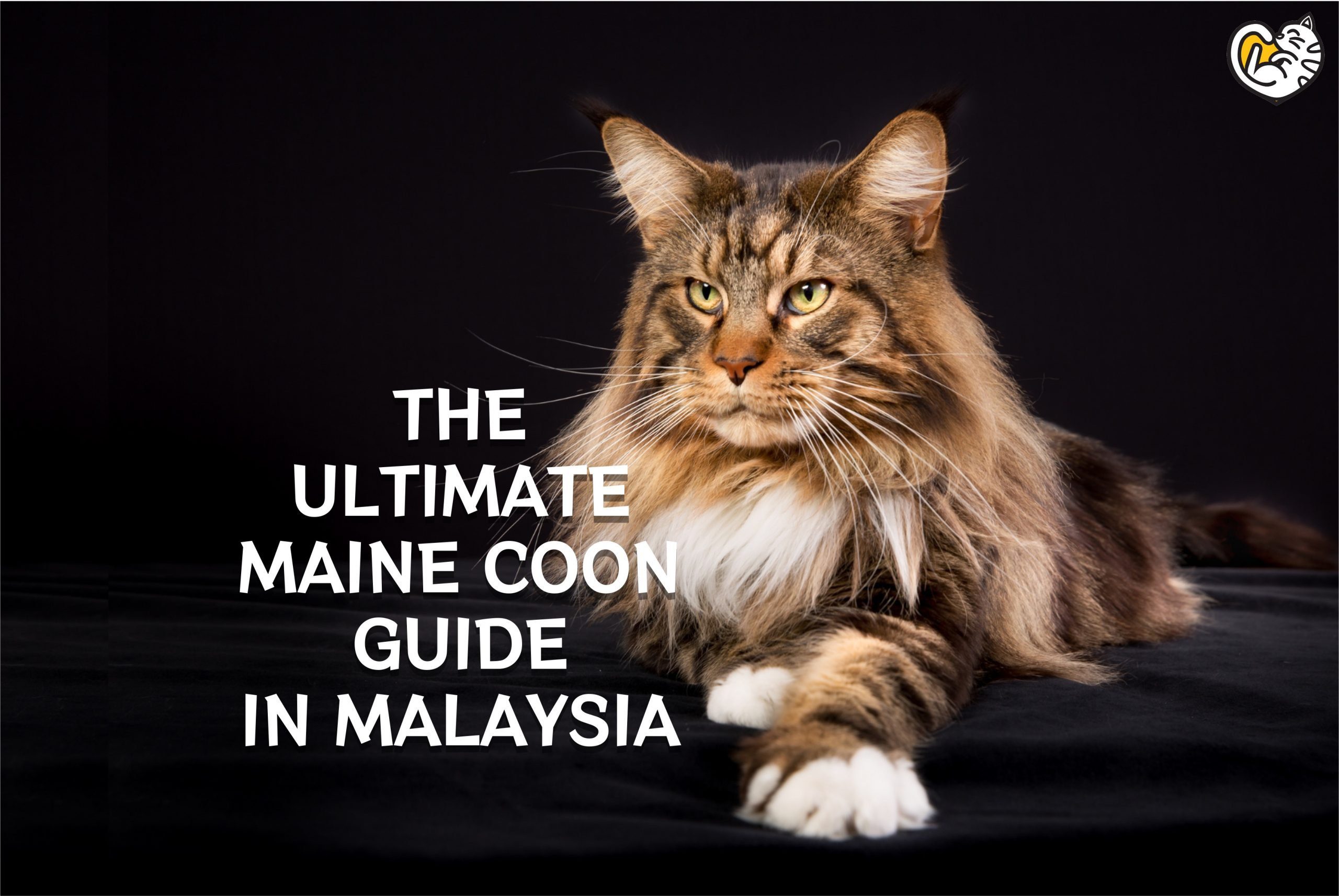
Credit: thegracecat.com
Frequently Asked Questions For Maine Coon Cat Care
Are Maine Coon Cats Hard To Take Care Of?
Maine Coon cats are not hard to take care of. They require the same level of care as all cats, with some extra grooming, a larger carrier, and a bigger litter box. They are fabulous cats to live with if you like big and beautiful breeds.
What Are The Weaknesses Of Maine Coon Cats?
Maine Coon cats are prone to certain health issues, including hypertrophic cardiomyopathy, hip dysplasia, and spinal muscular atrophy. However, they require the same level of care as other cats, with a little extra grooming, larger carriers and litter boxes, and possibly more food.
Overall, they are wonderful companions for those who appreciate big and beautiful cats.
Should Maine Coons Be Indoor Cats?
Maine Coons can be kept as indoor or outdoor cats due to their laid-back personality. However, many owners prefer to keep them indoors because they are a coveted breed and can be prone to theft when left outside alone.
Conclusion
Maine Coon cats are fabulous companions, and taking care of them is not as difficult as it may seem. While they require the same level of care as other cats, a few extra considerations should be made, such as grooming, providing a larger carrier and litter box, and offering high-quality food.
Despite their size, Maine Coons are gentle and lovable pets, making them a joy to have in your home. Just remember to keep an eye out for any hereditary health issues that they may be prone to. Whether kept indoors or outdoors, Maine Coons will surely bring delight to your life.
